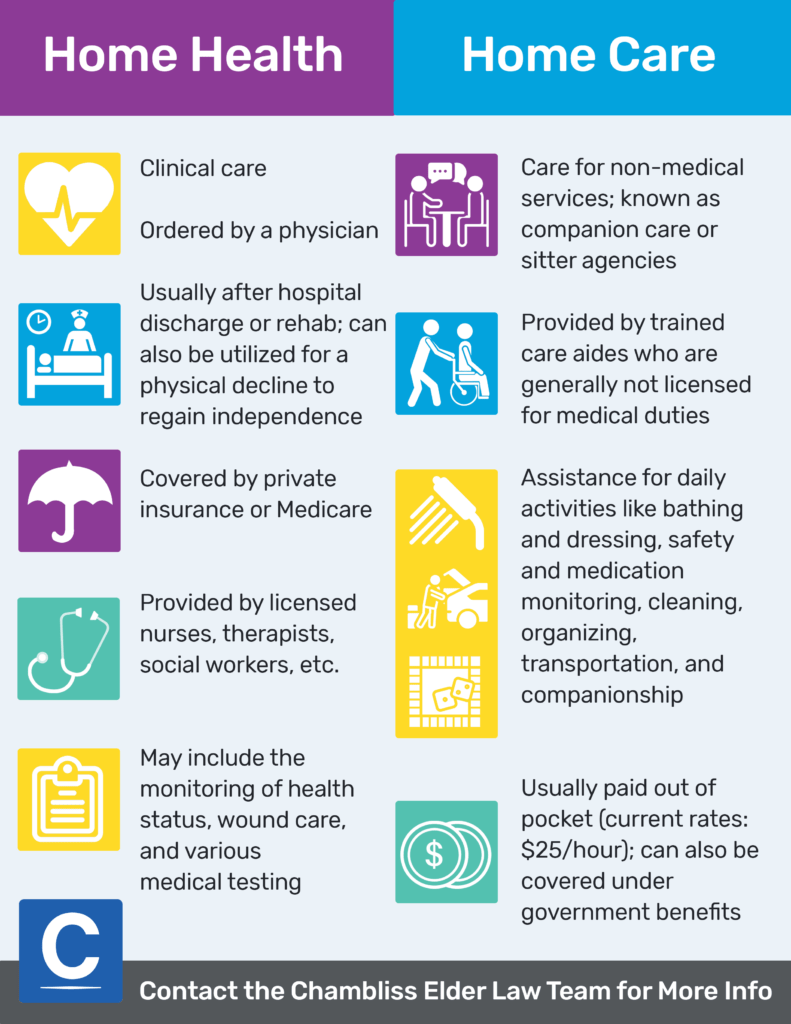A step-by-step guide to working with home care providers under the NDIS
A step-by-step guide to working with home care providers under the NDIS
Blog Article
The Value of Home Treatment in Disability Assistance: Discovering NDIS Registered Solutions
Home care is a fundamental facet of impairment support, especially within the structure of NDIS signed up options. It offers crucial services that promote freedom and boost total quality of life for people with handicaps. By offering personalized assistance, these solutions satisfy special needs and preferences. However, the effectiveness of home care relies upon ongoing communication with NDIS planners. This vibrant connection exposes deeper insights into the transformative potential of tailored assistance. What successes and obstacles arise in this advancing landscape?
Comprehending the Duty of Home Care in Impairment Support
Home treatment plays an important role in the assistance of individuals with impairments, providing substantial solutions that promote independence and boost lifestyle. It includes a variety of assistance customized to satisfy the unique demands of each person, including individual care, household jobs, and wheelchair support. Educated caretakers provide friendship and emotional support, fostering significant connections that battle social isolation.Furthermore, home care services are created to adapt as scenarios change, ensuring that people receive the suitable level of treatment throughout their lives. This flexibility enables the integration of new treatments or technologies that might arise. By focusing on the individual's choices and regimens, home treatment empowers them to keep control over their everyday tasks. Eventually, the duty of home treatment in disability assistance is necessary, as it not just offers sensible assistance yet likewise attests the dignity and freedom of those it offers.

Benefits of Personalized Help in the house
Individualized aid in your home offers many benefits tailored to private demands - home care providers. By creating personalized support plans, caregivers can considerably enhance the independence of individuals with disabilities. This approach not only promotes autonomy but also fosters a sense of self-respect and self-regard
Customized Assistance Strategies
Tailored support strategies play an important function in enhancing the high quality of life for people with handicaps. These personalized strategies are created to resolve the unique demands and choices of each individual, ensuring that support solutions line up with their particular objectives and way of living. By entailing clients in the planning process, customized assistance strategies promote a feeling of ownership and empowerment. This individualized technique allows caretakers to offer relevant aid, whether it includes daily living tasks, social engagement, or ability development. Additionally, tailored strategies can adjust to altering situations, reflecting the advancing demands of the individual. Ultimately, this tailored support enhances not just everyday functioning yet likewise psychological health, reinforcing the relevance of a tailored approach in special needs assistance services.
Boosted Self-reliance Opportunities
People with specials needs profit considerably from customized support at home, as it promotes enhanced self-reliance possibilities. Tailored support permits people to participate in everyday activities with better confidence and freedom. Home treatment services can consist of support with personal treatment, dish prep work, and family management, making it possible for clients to preserve their routines and choices. This personalized approach fosters a feeling of control, equipping people to choose that show their one-of-a-kind needs and goals. Furthermore, the convenience of home develops an acquainted environment, reducing anxiety and boosting emotional health. In general, personalized help not only supports essential daily jobs yet likewise cultivates an extra independent way of living, allowing individuals with handicaps to prosper within their communities and achieve better individual gratification.
Introduction of NDIS Registered Home Care Solutions
NDIS signed up home treatment solutions include numerous types of support tailored to individuals with disabilities (home care package providers). Understanding eligibility and access to these solutions is vital for optimizing the benefits of NDIS assistance. This summary will certainly highlight the key elements of home care under the NDIS framework
Kinds Of Home Treatment
Home care services play a necessary duty in sustaining individuals with disabilities, offering a variety of choices to meet varied requirements. NDIS signed up home care services consist of personal care, which aids people with everyday tasks like bathing and dressing. Residential aid aids keep a clean and secure living environment, while break treatment provides short-term relief for main caregivers. Area gain access to services enable engagement in entertainment and social tasks, fostering independence and connection. Additionally, nursing treatment provides clinical support in the house, making sure health and wellness demands are met. Treatment solutions, including occupational and physical rehabilitation, help in rehab and ability development. Together, these various kinds of home treatment add significantly to boosting the lifestyle for people with impairments.
Qualification and Accessibility
Exactly how can one access the important home care services given under the NDIS? To receive these solutions, people should meet specific eligibility requirements detailed by the National Impairment Insurance Coverage Scheme. Candidates should show a permanent and considerable impairment that impacts their everyday functioning. The process starts with sending an Access Request Type, that includes documentation of the special needs and its influence on everyday life. As soon as accepted, individuals obtain a customized plan describing their called for supports, consisting of home care services. These services can be accessed with NDIS-registered service providers, that need to stick to stringent high quality and safety and security criteria. Understanding these steps assurances people can properly browse the NDIS system to obtain the required support for their home treatment demands.
Benefits of NDIS Support
Accessing necessary support with signed up services provides people with impairments a transformative opportunity to improve their lifestyle. NDIS registered home treatment services offer tailored help, guaranteeing that each participant's unique demands are fulfilled. These services include a large range of assistances, consisting of Click This Link individual treatment, mobility support, and healing services, all made to advertise freedom and health. Furthermore, signed up service providers stick to extensive high quality requirements, assuring a high degree of care and safety. Individuals likewise take advantage of raised adaptability, allowing them to choose solution shipment techniques that best match their way of lives. Eventually, NDIS support promotes a sense of area and empowerment, allowing people with disabilities to engage more totally in their day-to-days live and achieve personal goals.
Customizing assistance to individual needs is necessary in special needs treatment, as each individual's preferences and situations differ significantly. The National Handicap Insurance Coverage System (NDIS) emphasizes the value of customized treatment strategies that show the distinct objectives and requirements of each individual. This method permits caregivers to concentrate on specific locations such as flexibility assistance, daily living abilities, and psychological support, guaranteeing that services are efficient and relevant.
Enhancing Quality of Life Through Home Care
While several individuals with specials needs face unique difficulties, home treatment solutions can considerably boost their top quality of life by offering customized assistance in familiar surroundings. These solutions foster freedom, permitting people to participate in day-to-day tasks that promote self-esteem and personal gratification. With customized treatment plans, home care carriers can address certain requirements, whether it involves aid with personal hygiene, meal prep work, or medicine management.Moreover, home care promotes social communications, motivating links with family members and pals, which are essential for psychological well-being. By continuing to be in their own homes, people experience a sense of security and continuity, reducing anxiety connected with unfamiliar settings. On top of that, caretakers can provide friendship, assisting to relieve feelings of isolation. On the whole, home care not just addresses physical demands however additionally enriches the social and emotional measurements of life for people with disabilities, eventually resulting in a more fulfilling and pleasurable presence.
Browsing the NDIS for Home Care Solutions
Assisting through the National Impairment Insurance Coverage Plan (NDIS) can substantially impact the efficiency of home treatment options for people with disabilities. Comprehending the NDIS structure is important for participants looking for suitable funding for home care services. This procedure starts with identifying private needs and objectives, which aids in tailoring support strategies that straighten with the participant's requirements.Navigating the NDIS entails familiarizing oneself with the eligibility standards, application treatments, and the preparation procedure. Participants should involve with NDIS organizers to discuss their certain situations and preferred results. This dialogue assures that the needed home treatment solutions, such as individual treatment, assistance with daily living, and therapeutic assistance, are included in their plans.Furthermore, staying upgraded on NDIS plans and any type of modifications in funding can encourage individuals to make enlightened selections concerning their home treatment choices, eventually improving their self-reliance and lifestyle.
Success Stories: Empowering Lives Through Home Treatment
Home treatment services have actually changed the lives of lots of individuals with specials needs, showing the extensive effect of individualized support. Sarah, a young female with cerebral palsy, gained freedom with tailored home care assistance that allowed her to take part and handle daily tasks in area tasks. Similarly, John, who has autism, took advantage of a helpful resources devoted caregiver who aided him establish social skills and foster significant partnerships, improving his lifestyle. These success tales highlight just how home care not just meets physical requirements yet additionally promotes emotional health. Families report raised comfort, recognizing their loved ones get compassionate and specialist assistance in a familiar setting. As these examples show, home treatment encourages individuals with handicaps to flourish, motivating self-sufficiency and boosting general life satisfaction. The transformative results of such solutions emphasize the importance of home treatment in the more comprehensive context of disability assistance.

Frequently Asked Inquiries
Exactly How Can I Discover NDIS Registered Home Care Providers in My Area?
To find NDIS registered home care suppliers in a certain location, people can check out the NDIS internet site, use the provider finder device, or call neighborhood handicap support organizations for suggestions and assistance.
What Qualifications Should Home Treatment Workers Possess for Disability Support?
Home treatment employees for special needs assistance ought to ideally possess qualifications such as a Certification III in Person Assistance, appropriate experience, strong interaction skills, empathy, and knowledge of disability civil liberties and person-centered care practices.
Exist Any Kind Of Costs Connected With NDIS Registered Home Care Providers?
Expenses related to NDIS signed up home care services can differ based on private needs, provider, and the level of treatment called for. Participants should examine their strategies to understand details funding and possible out-of-pocket expenses.
Can Home Care Solutions Accommodate Specific Cultural or Language Demands?

Just How Usually Can I Change My Home Treatment Assistance Plan?
People can typically change their home care support plan as needed, frequently at the very least every year or upon significant life adjustments. Normal testimonials ensure that the strategy stays appropriate and successfully addresses advancing personal situations and requirements. Trained caregivers supply friendship and psychological assistance, promoting meaningful links that battle social isolation.Furthermore, home treatment services are developed to adjust as conditions alter, guaranteeing that individuals receive the ideal level of care throughout their lives. Home care services can consist of help with personal treatment, meal prep work, and family monitoring, allowing clients to preserve their preferences and regimens. NDIS registered home care solutions include individual care, which assists individuals with daily tasks like bathing and clothing. With tailored treatment plans, home treatment service providers can address particular demands, whether it includes assistance with individual hygiene, meal preparation, or medication management.Moreover, home treatment promotes social communications, encouraging connections with family members and buddies, which are crucial for emotional health. Costs linked with NDIS registered home care solutions can vary based on private demands, service suppliers, and the level of care called for.
Report this page